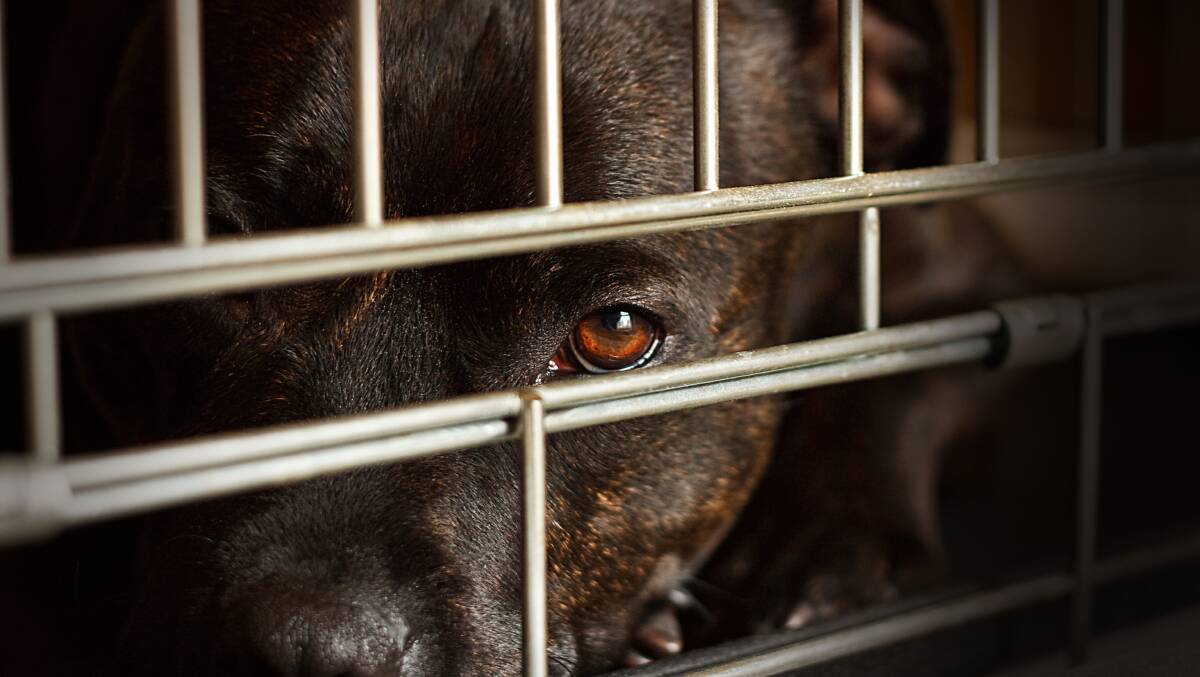
Domestic animal laws which gave bureaucrats the power to seize and destroy dogs have put too much power in the hands of the regulator and need to be tweaked to better consider the needs of animals and their owners, a legal advocate says.
Subscribe now for unlimited access.
$0/
(min cost $0)
or signup to continue reading
Domestic Animal Services has destroyed 224 dogs since May 30, 2018, after the introduction of the new laws. Only one dog ordered to be euthanised was saved by an appeal in the same period.
Tara Ward, the volunteer managing solicitor at the Animal Defenders Office, said the new laws had not been used in a positive way.
"It's very haphazard and from our point of view, it just has really shifted the balance and given way too much power back to the regulator," Ms Ward said.
Ms Ward said efforts to modify domestic animal laws came against community sentiment in favour of tough rules to punish dogs involved in attacks.
"There still is this idea out there in the community that all sorts of savage dogs are out there and ready to pounce. If anything, the community seems to potentially want laws to go further in the direction of coming down on dog attacks," she said.
"It certainly is an issue, it's just a question of how that issue is dealt with. Putting all this power in the hands of a faceless bureaucrat - the regulator - is just not the answer."
Under the laws, the registrar must destroy a dog which has caused the death of a human or animal, unless the attack was provoked or reasonable steps can prevent the dog endangering the public or other animals.
Ms Ward said the Animal Defenders Office, a volunteer-run community legal centre which represents people in matters involving animals, had been involved in cases where an apparent dislike of the dog or its keeper had affected the decision making process.
"From our perspective, that is the typical case where the regulator for whatever reason doesn't like the keeper. It could be their past history with the regulator. Sure, a history of minor non-compliance. But invariably, that is what we find and we hear the same story. Every single client presents saying, 'They don't like me. They've got a vendetta against me.' We can say to the person we hear that every time, but that doesn't help the situation if that's their perception," she said.
The ACT Civil and Administrative Tribunal in November confirmed a decision of the domestic animals registrar to destroy an American Staffordshire terrier which had entered a Melba house and killed a cat in the company of its adult pup after first attacking another dog in February.
Senior tribunal member Mary Brennan found the dog's owner was sincere in her application to keep the dog, but the dog, which had not previously been aggressive, still presented an unacceptable risk to public safety.
READ MORE:
Ms Ward, who represented the dog owner in the matter, said every potential option needed to be considered before a dog was euthanised.
"The regulator in this space, I would say, in order to administer that part of the Domestic Animals Act fairly [and] justly ... needs to exhaust every reasonable option in order to give this dog a second chance. And we're not seeing that happening," she said.
Ms Ward also said the time it took to finalise a case created a new welfare issue.
"Our immediate concern is that there is a dog that is impounded, usually for a long, long period of time. And no animal should be kept in those conditions. The clock's ticking and it's making their rehabilitation prospects harder and harder," she said.
Domestic Animal Services received 744 reports of dog attacks or harassment in 2020, down from 817 the year before. In 2012-13, 85 dog attacks were reported.
"These incidents vary in severity from harassment, that causes no physical injury, through to aggressive biting requiring medical treatment," an ACT government spokesman said.
The spokesman said the ACT had the strongest dog laws in Australia, and had a higher rate of dog attacks because it was an offence not to report an attack.


